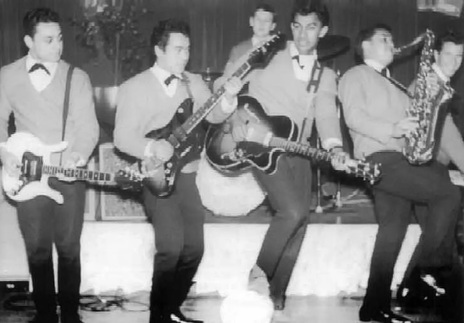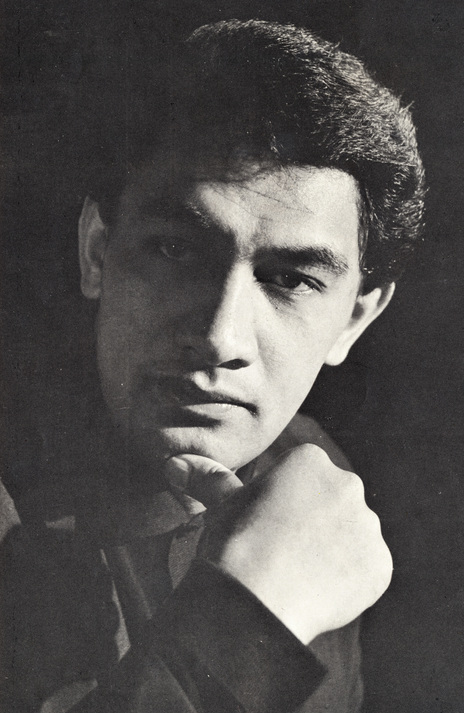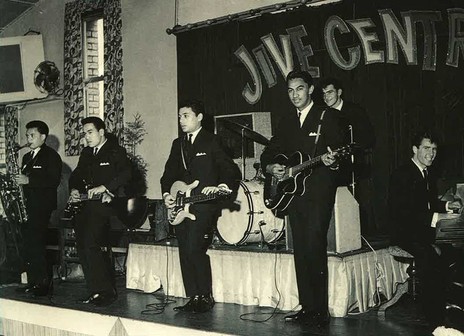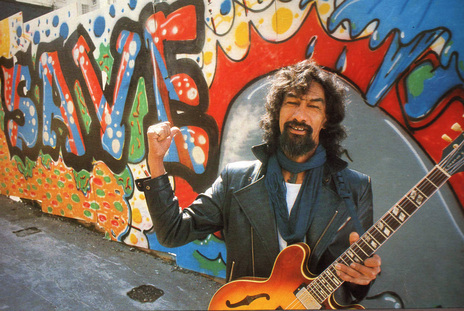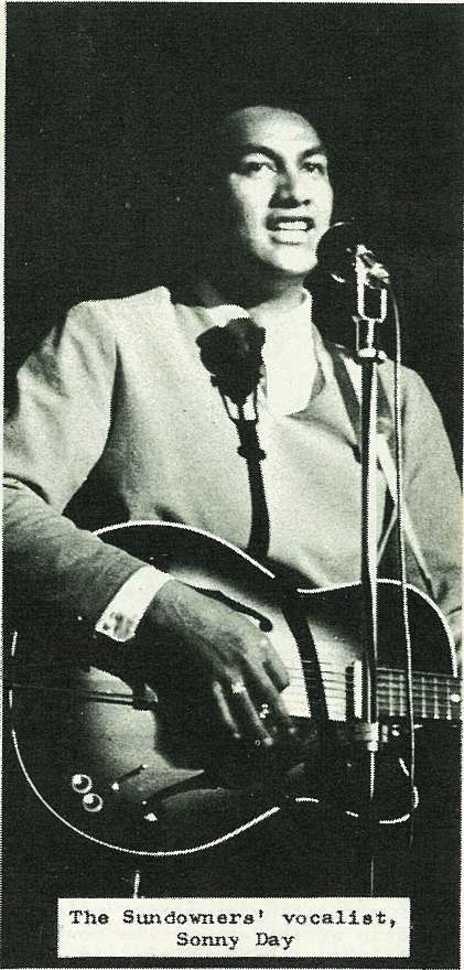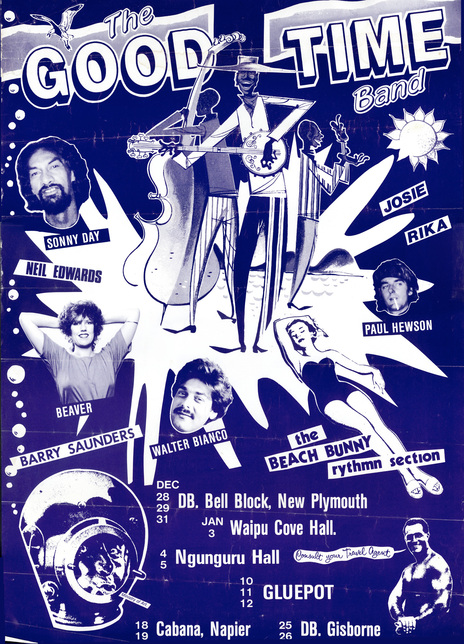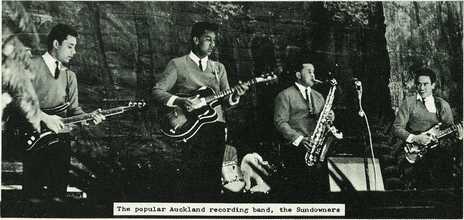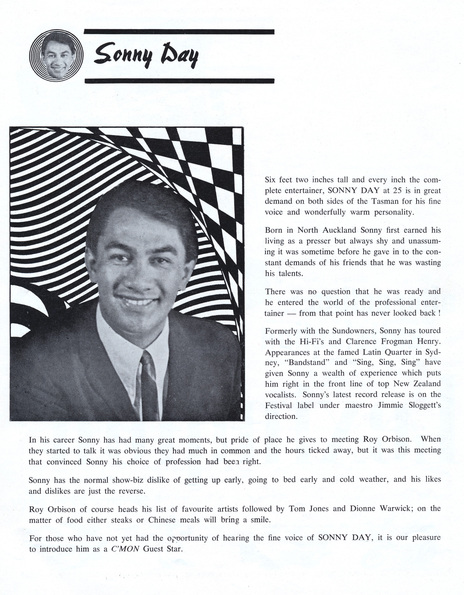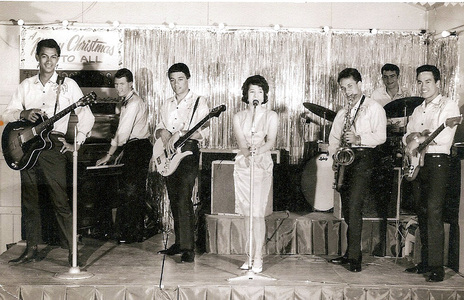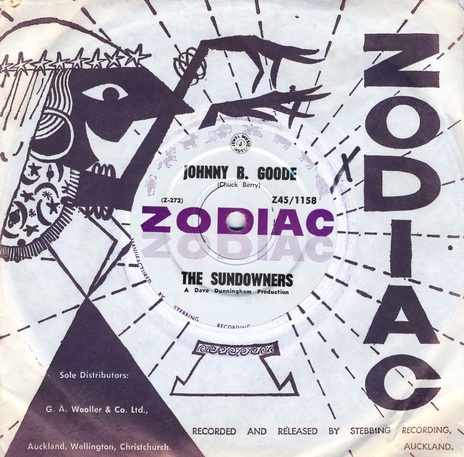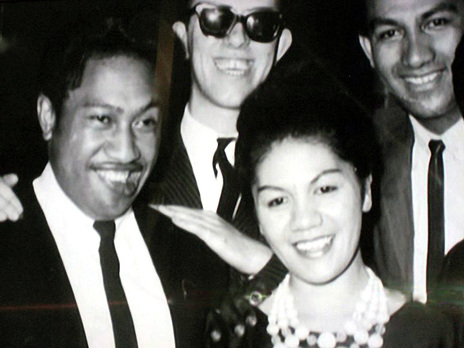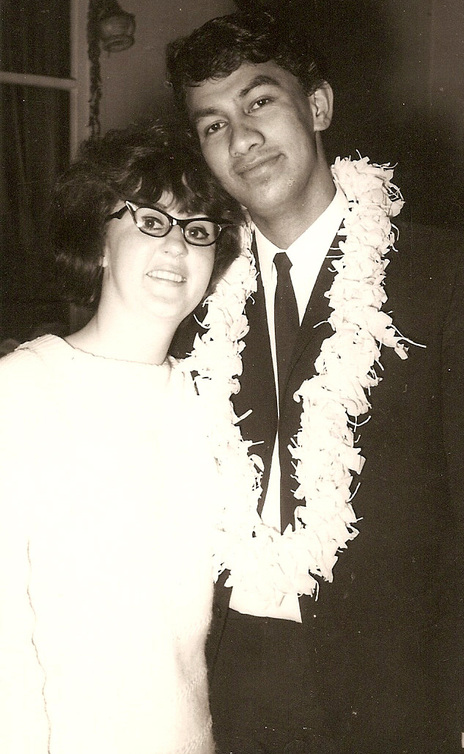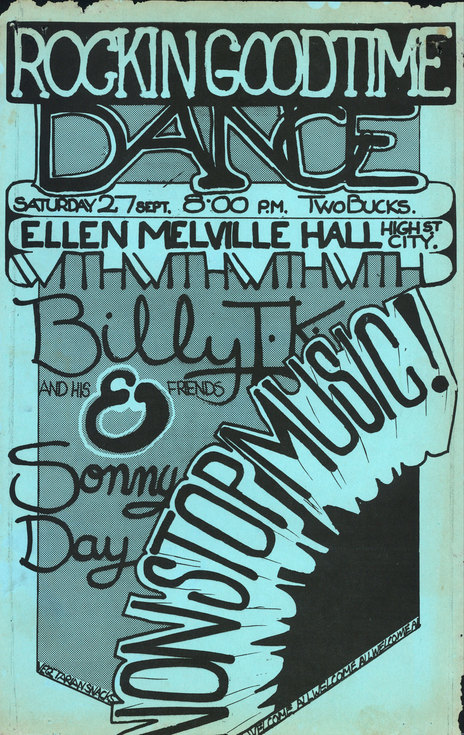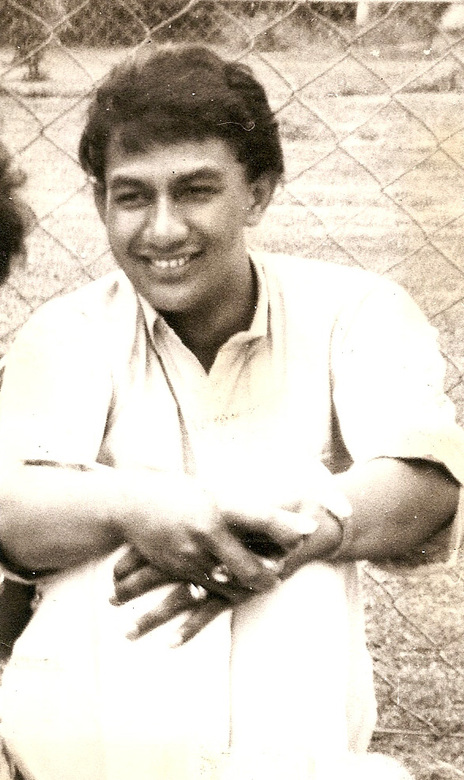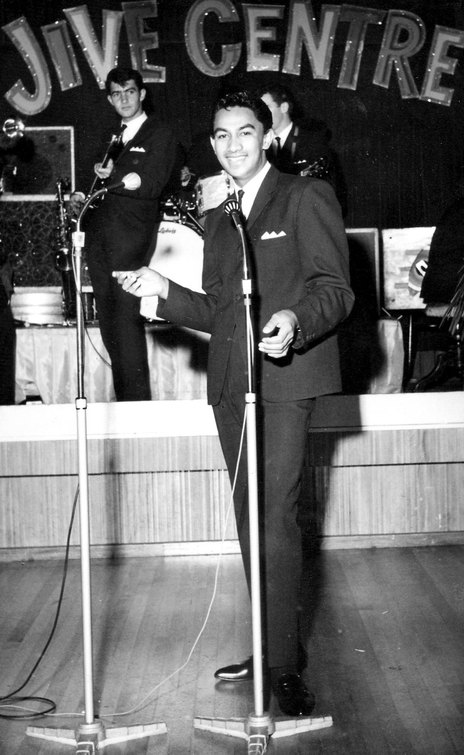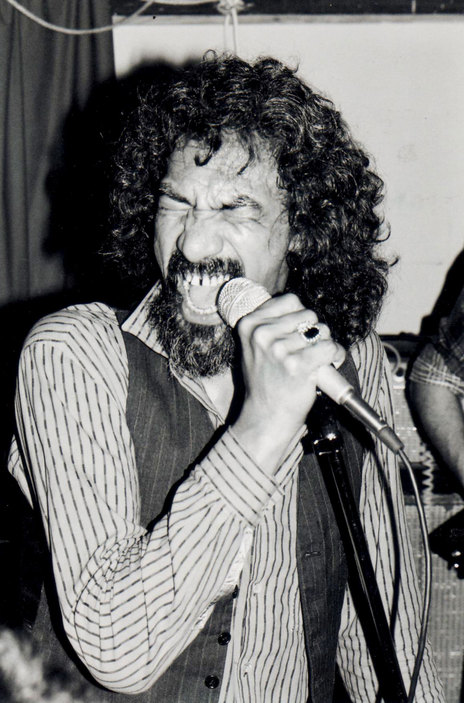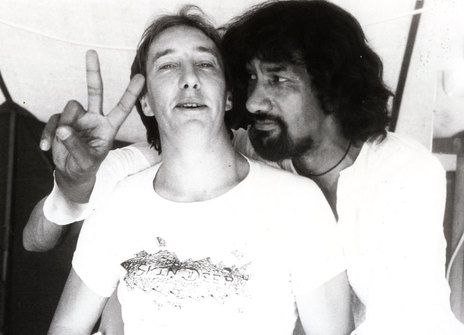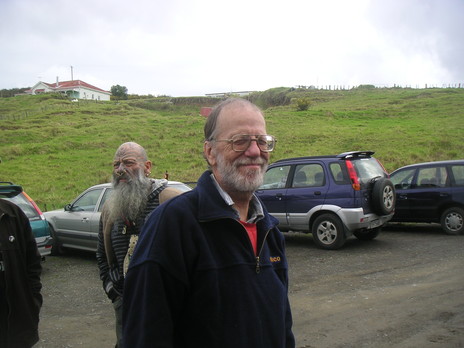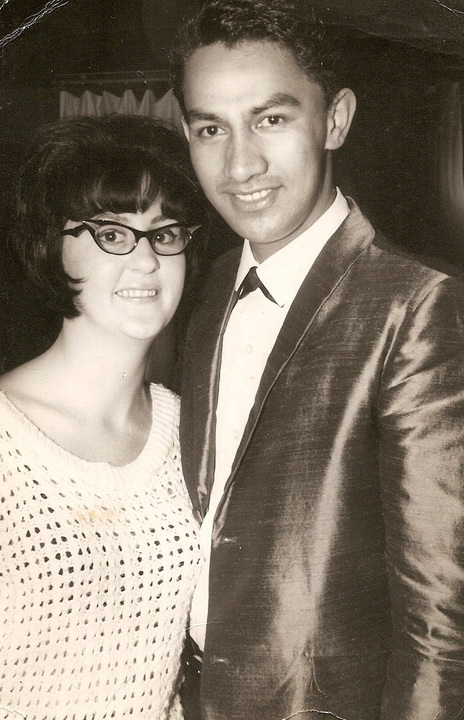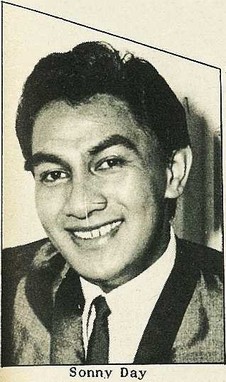Those who paid tribute included Beaver, Mahia Blackmore, Annie Crummer, Hammond Gamble, Hello Sailor, Herbs, Midge Marsden, Larry Morris Band, Barry Saunders, Supergroove, Billy TK, Unity Pacific and Kim Willoughby. The Sundowners, Sonny’s first band, reformed for the occasion, their first performance in 42 years.
Sonny Day (real name: Hone John Wikaira) was born in the Hokianga into a large Māori family (Ngai Tototo/Ngai Te Hikitu) on October 6, 1942, the family following the urban drift to Auckland in 1954. Nicknamed Sonny as a child, the young Wikaira grew up surrounded by music of all sorts and his subsequent career displayed his eclectic tastes.
The band had already made its mark, impressing Viking Records’ Ron Dalton and an Australian promoter.
He formed his band in late 1960 with guitarist Bob Wynyard. Originally called Sonny Day and The Sharks, they were soon renamed Sonny Day and The Sundowners, featuring bassist John “Yuk” Harrison and drummer Alphonso Keil, both late of Freddie Keil and The Kavaliers, with Sonny on lead vocals and rhythm guitar. There were regular line-up changes, with Sonny and Wynyard the only consistent members.
In 1962 a residency at the Tijuana Coffee Lounge in Auckland’s CBD was cut short when the place burned down. But the band had already made its mark, impressing Viking Records’ Ron Dalton and an Australian promoter who flew them to Sydney for a handful of gigs and an appearance on the Bandstand TV show.
Back in Auckland, they replaced The Keil Isles at the Jive Centre, Auckland’s top teenage nightspot. Proprietor Dave Dunningham insisted that they beef up their sound (it worked for the Keils) and at times the line-up featured up to nine players. They were also required to back solo vocalists who, in effect, became de facto members – Cheryl Allison, Dave Henry, Eddie Low, Tina Miller, Anne Murphy, John Rowles and Joy Yates all featured, and musicians to pass through included drummers Graeme “Trix” Willoughby and Australian Lionel Kennedy, saxophonists Lloyd Te Ngaio and Marsh Cook, and long-serving members Teddy Toi (bass) and Max Purdie (piano).
The band’s Viking releases were, as was the norm, all covers of overseas hits – ‘Wolverton Mountain’, ‘How Many Times?’ and ‘Hullo Out There’, plus an EP, Limbo Rock. In 1963 they signed to Zodiac Records, releasing ‘Hawaiian Wedding Song’, ‘Baby Jane’, ‘Johnny B. Goode’ and ‘Nitty Gritty". A fourth single, ‘I Ain’t Got No Home’, was credited to Dave Henry and The Sundowners. Remarkably, given his longevity and popularity, these were Sonny Day’s only releases for 20 years, None were huge sellers but the Sundowners were extremely popular as a live band and, managed by Dunningham, they played many Dunningham promotions, including his summer venue, Le Mount, at Mt Maunganui and a nationwide tour supporting Clarence “Frogman” Henry.
In August 1964 Sonny Day left the Sundowners and in the new year accepted an offer by French Polynesian promoter Gilbert Tong to join the remnants of the post-Freddie Keil, Kavaliers. Māori showbands were pretty hot, particularly on Tong’s Polynesian circuit and, renamed the Māori Kavaliers, based at Tahiti’s Hotel Taaone, the band played in Noumea and the New Hebrides, regularly featuring guest singers like Dinah Lee, Howard Morrison, Peter Posa and Toni Williams.
When he returned to Auckland in 1967 he’d developed a passionate love of soul music.
Sonny Day remained in Tahiti for two years and when he returned to Auckland in 1967 he’d developed a passionate love of soul music, for which his velvety tones were well-suited. He fronted the Dallas Four billed as “NZ’s King of Soul” and was a regular on the C’Mon TV series. At year’s end he was in the Mojomen, the ever-changing resident band at Mojo’s nightclub, and in 1971 he formed Breeze with Bob Gillett, resident at The Tabla nightclub.
Sonny spent the 1970s in a variety of bands (Crow, Caravan, Tommy Ferguson Goodtime Band), mostly in nightclub residencies. He based himself in Hamilton for a while, bringing him into contact with Paul Walker, who was to manage him in the coming years. Walker introduced him to blues enthusiast Midge Marsden and in 1979 Sonny joined Marsden’s Kiwi Connection.
Oh, he had played a lot of R&B over the years, as well as his beloved Memphis-style soul music, but his time with the Kiwi Connection introduced him to the raw blues which had largely passed him by. He proved to be a willing disciple and the blues was to be his music of choice throughout the rest of his career.
In 1983, Paul Walker formed the All-Stars Play The Blues package, initially as a one-off series of concerts but which was to continue through to the end of the decade. Sonny Day and Midge Marsden were the stalwarts; others to pass through included Beaver, Neil Edwards, Mike Farrell, Hammond Gamble, Paul Hewson, Dave McArtney and even British R&B enthusiast Wilko Johnson. Stevie Ray Vaughan also jammed with the band.
‘Saving Up’ wasn’t a huge hit (five weeks on the charts, peaking at No.26) but it developed a life of its own.
The All-Stars Play The Blues was a highly successful concept and Sonny Day was an important ingredient. In 1985 a recording session by the All-Stars included a little-known Bruce Springsteen composition which had been recorded by E-Street saxophonist Clarence Clemons. Sung by Sonny Day and released as a single, ‘Saving Up’ wasn’t a huge hit (five weeks on the charts, peaking at No.26) but it developed a life of its own, long after the pressing had sold out, a New Zealand evergreen which has proved popular with radio’s solid gold format.
When the All-Stars ran out of steam, Sonny fronted his own bands, mostly under his own name. One exception was the wonderfully-named Tall Dark And Out Of It, featuring bassist Corben Simpson and drummer Maurice Greer. For a spell in the 1990s he hosted the weekly Jam Nights at the Java Jive, Paul Walker’s Ponsonby venue, and Sonny Day bands were regulars at The Gluepot through to its closure in 1994.
From the mid-1990s on, Sonny Day earned a reputation as a genial if unreliable party animal and the gigs dried up. He retired to hometown Rawene for a spell but the lure of the city was still strong. His performances became fewer and fewer and, sadly, his health deteriorated.
In a band featuring guitarist Grant Wills, bassist Billy Kristian and drummer Leyton Greening, he gave his last performance at Music Mountain Matakana on February 11, 2006. Sonny Day died in his sleep on August 9, 2007.
